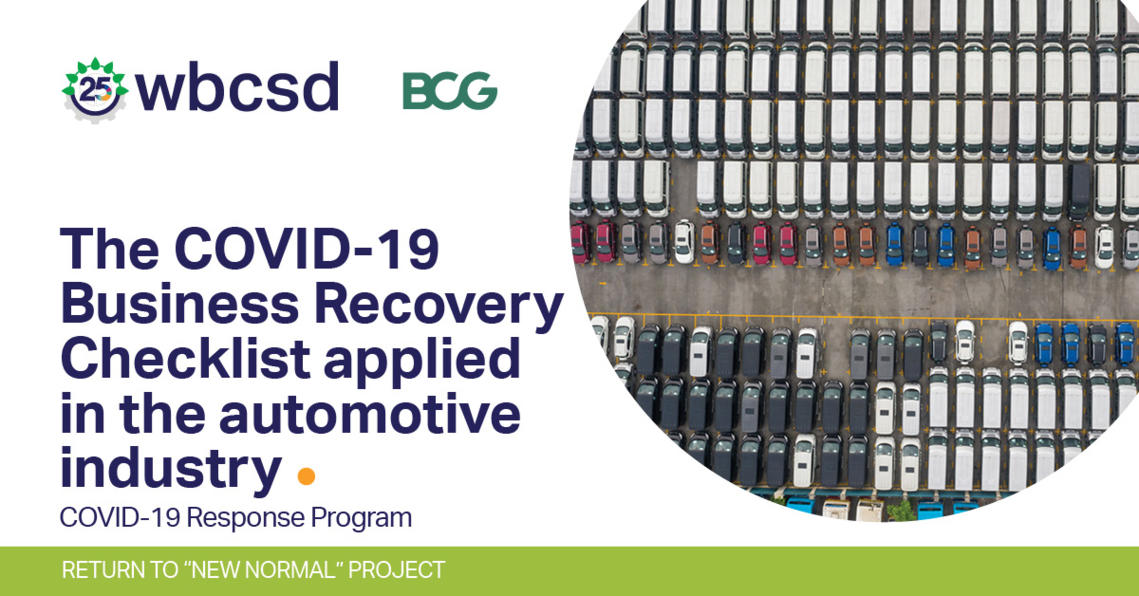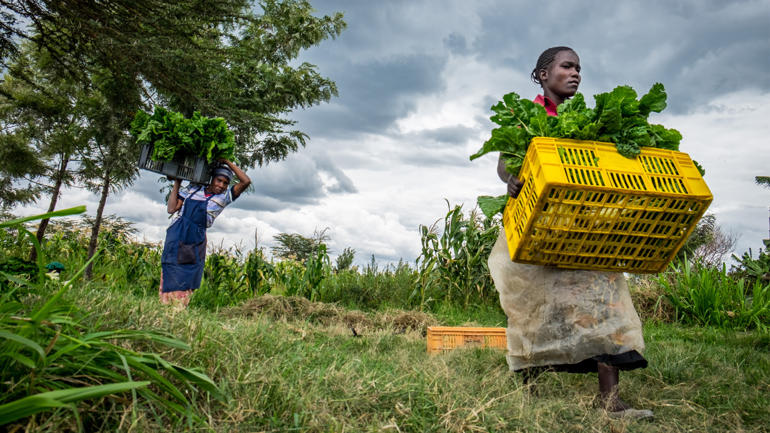Geneva, 31 July 2020: In the context of our COVID-19 Response program, we have collaborated with Boston Consulting Group (BCG) to develop a perspective on a sustainable & inclusive recovery in the automotive industry showing how the checklist tool can be applied in the automotive industry.
The outbreak of the COVID-19 pandemic has required unprecedented public health measures taken across all geographies, with business shutdowns and stay-at-home policies disrupting the global economy at a scale never seen before. The crisis has limited the operations of many businesses and has had implications for employees, supply chains, cash flows and investor returns. Yet, it has also highlighted the importance of effective and sustainable continuity planning for business resilience.
The outbreak impacted original equipment manufacturers (OEMs) and suppliers worldwide earlier than businesses in other industries. The virus’ spread to Europe and the USA triggered business shutdowns and stay-at-home orders in major markets, weakening customer confidence and increasing their propensity to save. The recent lifting of restrictions allows businesses to slowly reopen and ramp up production, but according to forecasts, new vehicle demand will remain suppressed for the next several years. Financial strain, supply chain disruptions and new compliance requirements are but a few challenges automotive companies are facing.
This global pandemic provides automotive companies with an opportunity to address and improve the sustainability of their value chains. The crisis has highlighted that collaboration across companies, sectors and geographies is a critical factor in ensuring societal well-being.








